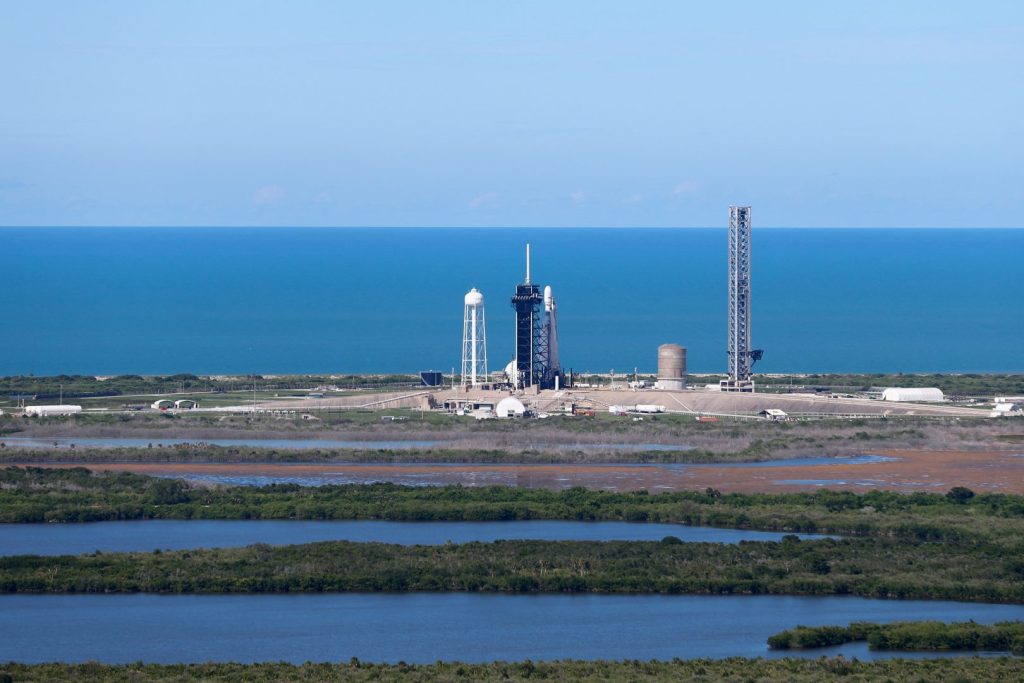
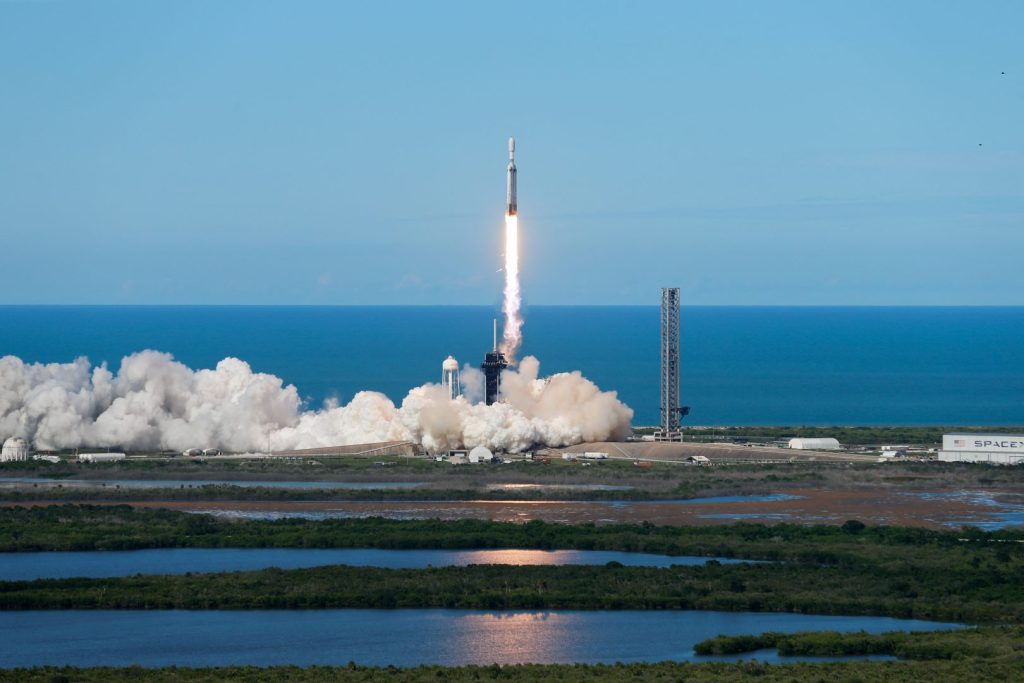
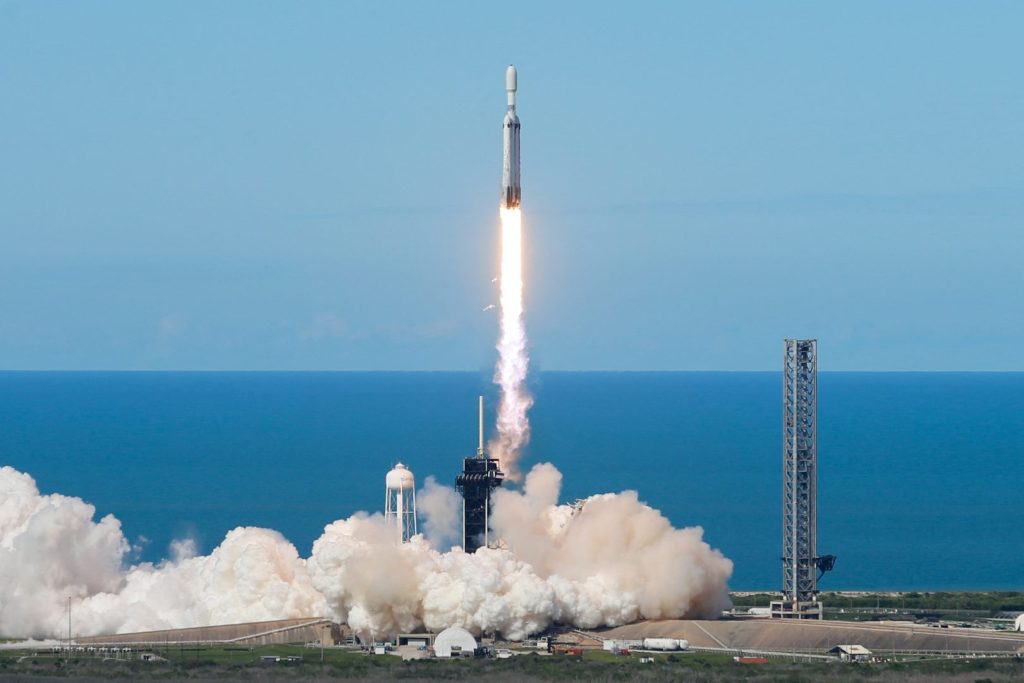
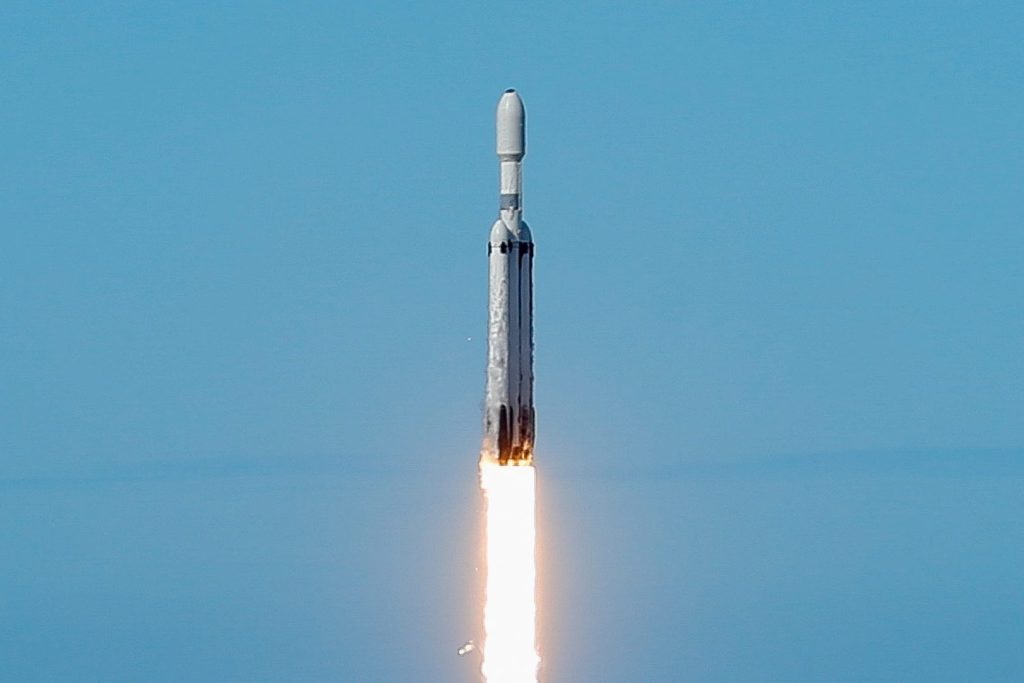
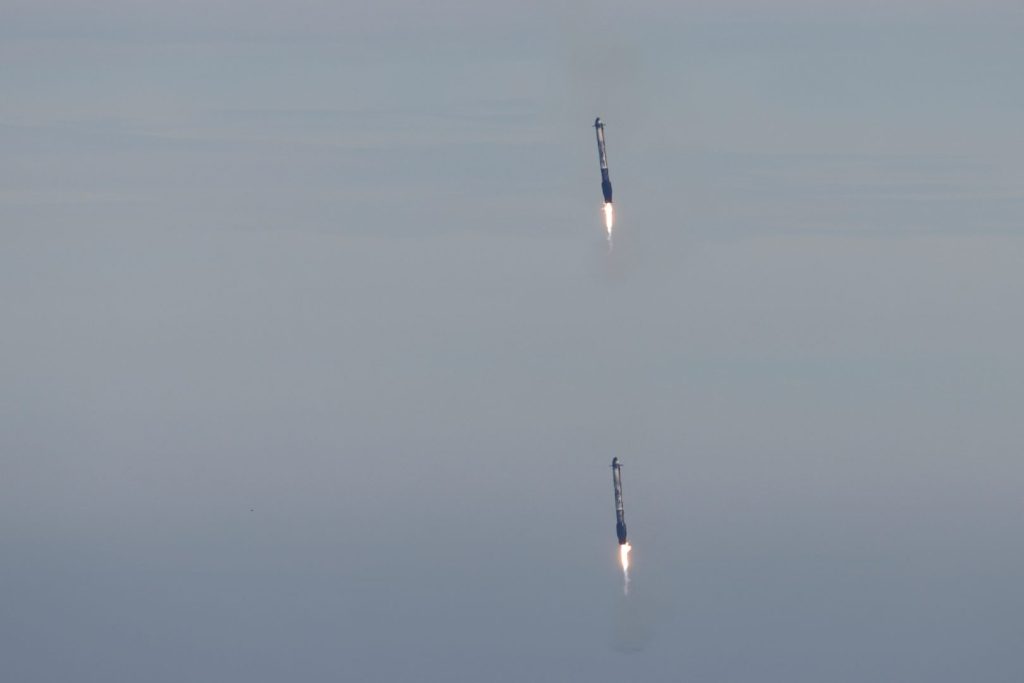
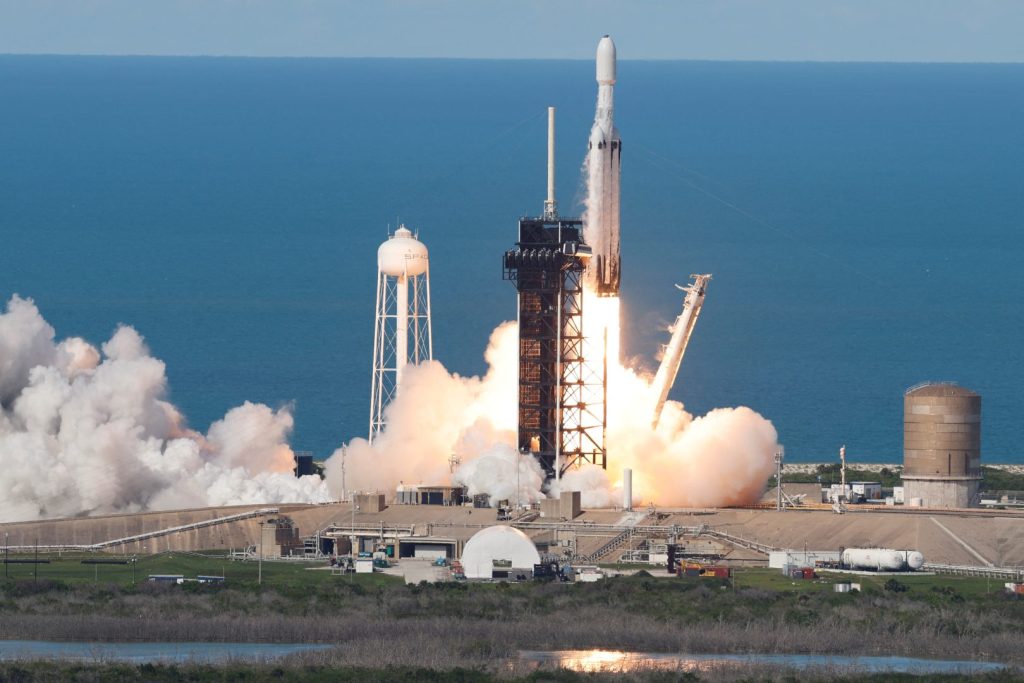
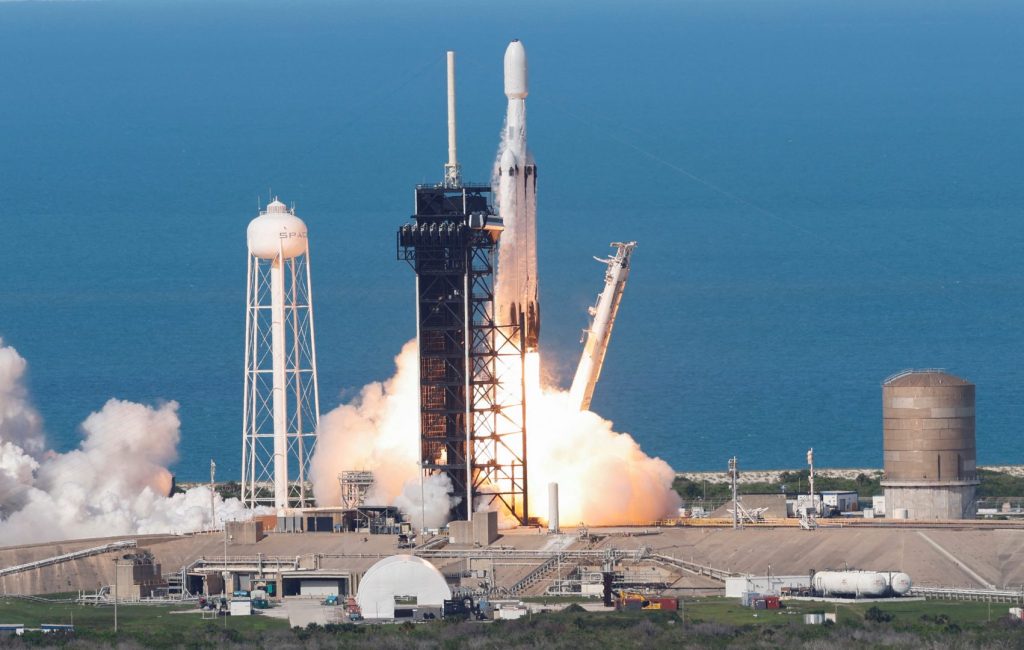
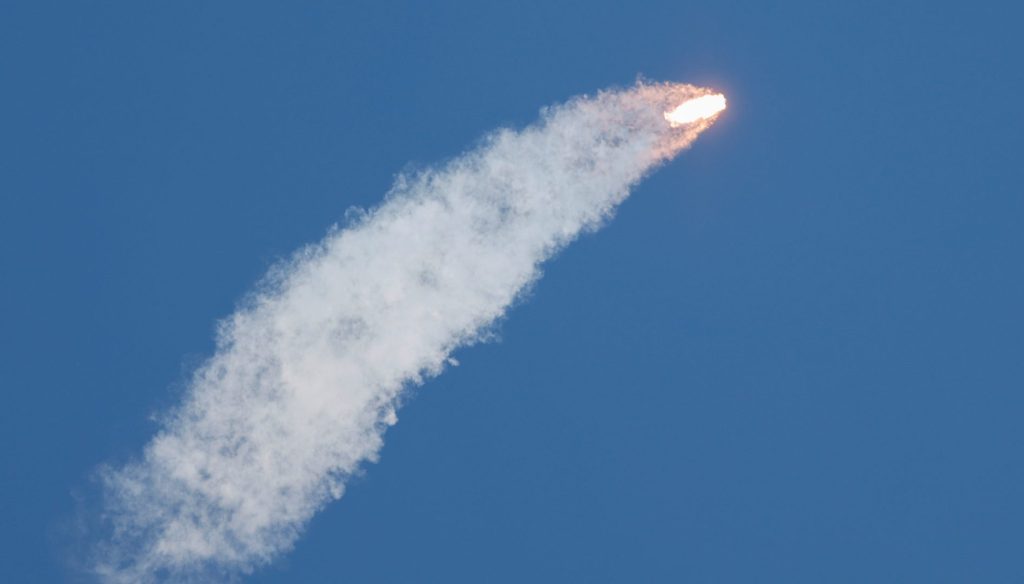
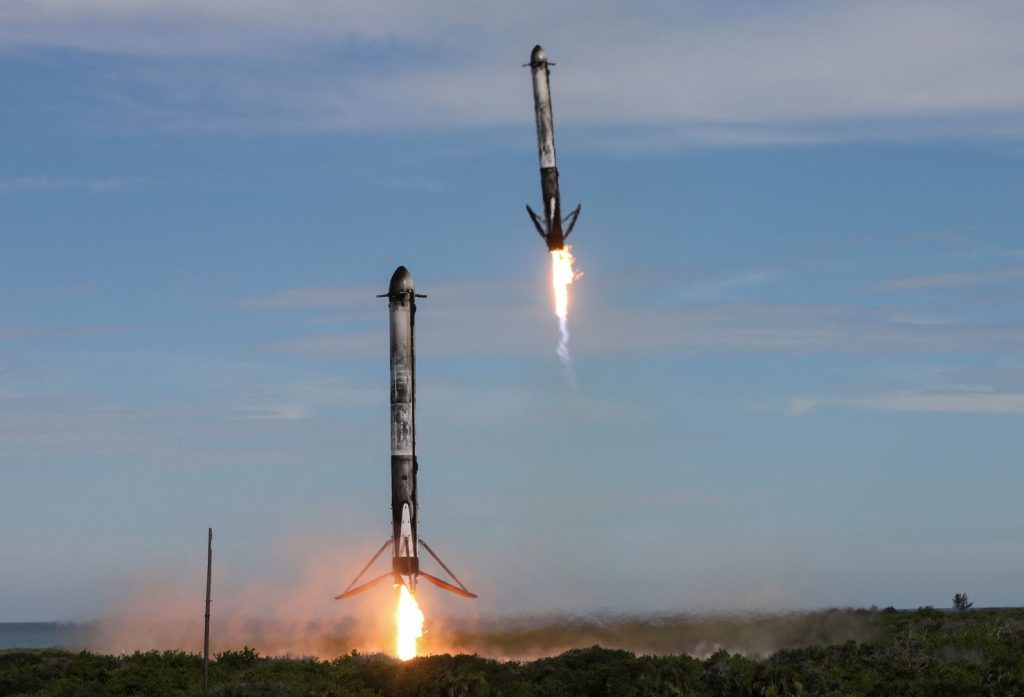
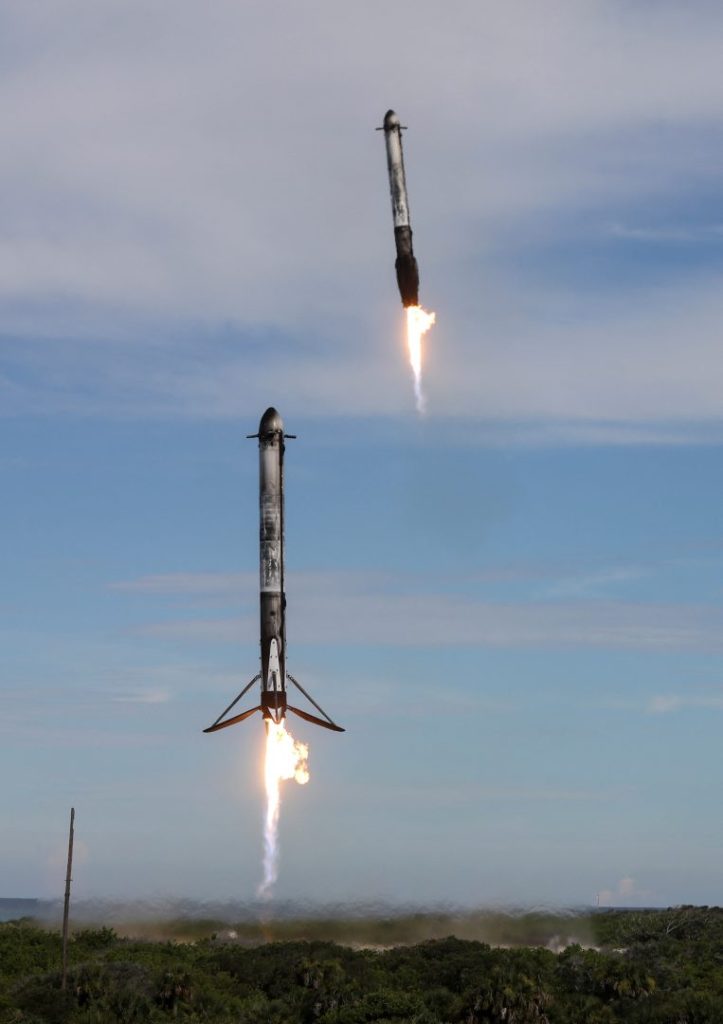
SpaceX’s Falcon Heavy Rocket Launches GOES-U Weather Satellite
SpaceX’s Falcon Heavy rocket successfully launched NASA’s GOES-U weather satellite on 25 June 2024. The launch took place at Kennedy Space Center’s Launch Complex 39A. Spectators worldwide, both on-site and via video, witnessed the mission’s highlight: a spectacular dual booster landing.10th Falcon Heavy Flight
This launch marked the 10th flight of the Falcon Heavy and SpaceX’s 67th launch of the year. The powerful rocket comprises three Falcon 9 first-stage boosters strapped together, providing 5.1 million pounds of thrust at liftoff. This immense power enabled the rocket to carry the GOES-U satellite into orbit successfully.Boosters’ Synchronized Landing
Approximately two and a half minutes into the flight, the side boosters separated from the center core. As the center core continued to propel the GOES-U satellite towards its intended orbit, the two side boosters began their choreographed descent back to Earth.The video footage shows the boosters’ synchronized return, guided by their onboard computers. As they approached Landing Zones 1 and 2 at Cape Canaveral Space Force Station, the boosters ignited their engines for the landing burn, slowing their descent. Moments before touchdown, the boosters deployed their landing legs. The video captures the precise, simultaneous landing of both boosters, accompanied by multiple sonic booms that shook the ground and rattled nearby buildings.Successful Recovery and Mission Details
This successful recovery marks the 41st landing on LZ-1 out of 42 attempts and the 11th flawless landing on LZ-2. However, the center core was expended to maximize performance for the GOES-U mission.Advanced Weather Monitoring Capabilities
The GOES-U satellite is the final in NOAA’s GOES-R series. It will provide advanced weather monitoring capabilities, including improved imagery of Earth’s weather, oceans, and environment, as well as enhanced solar activity and space weather observations. This satellite will significantly contribute to better weather forecasting and environmental monitoring.Key Mission Achievements
- 10th Falcon Heavy flight
- SpaceX’s 67th launch of the year
- Successful dual booster landing
- Advanced weather monitoring from GOES-U





